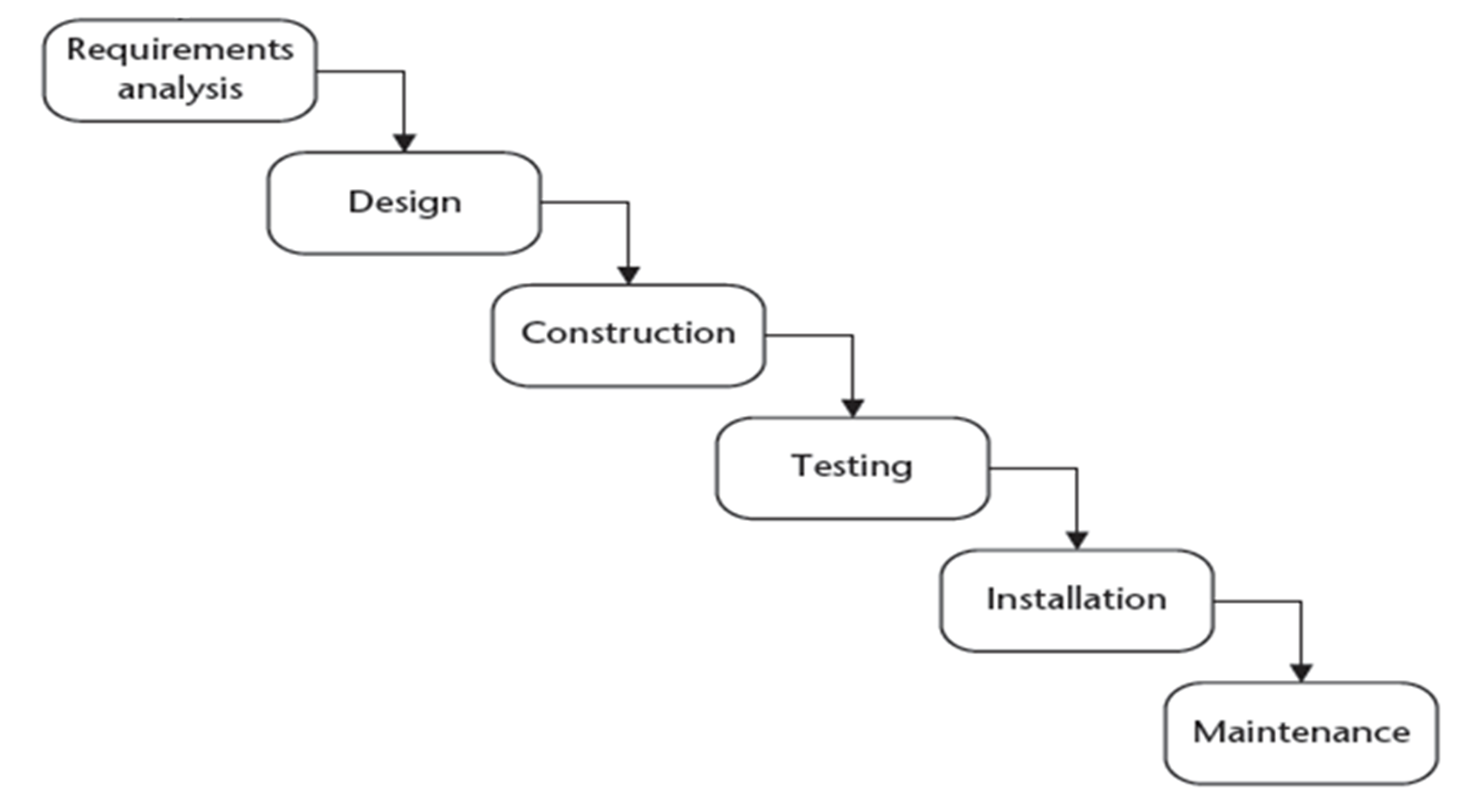A traditional methodology for information systems development. Known as waterfall because of its strict linear path, where each component depends on the one before it.

Evaluation
Benefits
- Waterfall is straight-forward and structured, simple for simple projects.
- At the end of each phase in Waterfall, the project’s progress is evaluated and documented.
- Tasks in phases may be assigned to specialised teams in Waterfall, encouraging everyone to focus on what they are good at and the production of good work by a respective team.
Detriments
- Real-world projects rarely follow a simple sequential life cycle; iterations are almost inevitable, and the time between requirements analysis and the final installation may be lapses.
- Waterfall is generally unresponsive to changes during the project, as majority of the planning is done during the early parts of the project.
- Waterfall is only appropriate when the requirements are well-understood. Ones that are not will not perform well as there is a chance that iteration is needed.